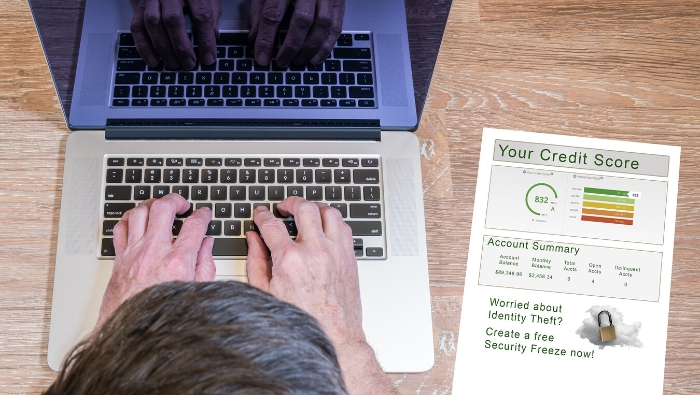Can a Security Freeze Protect Your Identity?

Think you don’t have to worry about having your personal information stolen? Think again. We’re all vulnerable. Here are some things you should know about security freezes and ID theft in order to protect yourself.
Data breaches are an increasingly common problem in the 21st Century. The media is full of accounts of data being stolen from companies like Target, Michael’s, T-Mobile, Blue Cross-Blue Shield, educational institutions like the University of Maryland, and even government entities like the IRS and the U.S. Office of Personnel Management. No one, it seems, is immune from the wiles of hackers who want to steal your personal data for fun and profit.
The IRS security breach was particularly egregious. In February of 2015, certain state tax officials and the tax filing company TurboTax, temporarily stopped online tax filings because they became aware of a wave of tax refund thefts. By May, the IRS announced that its own systems had been breached, which affected 100,000 taxpayers, but by August, the IRS’s own figures indicated that more than 335,000 people had suffered data theft. The information was stolen because the thieves had access to Social Security numbers, tax filing status, consumers’ addresses, their dates of birth, and even the answers to their personal security questions.
How Serious Is This Problem?
Because of the massive increase in data hacking in the last decade, you can have your identity and financial information stolen any time you do any one of these seemingly innocent activities: shop with credit or debit cards (online and in public spaces), pay your taxes, have health insurance, frequent any business that records customer data, or work for just about any government agency.
Sounds scary, doesn’t it? Even if you are vigilant about safeguarding your passwords, change them frequently, have installed effective anti-virus and malware protections on all your computers and other devices, and routinely shred all documents, junk mail, etc. that contains personal information, you may still be at risk. Why? Read on.
Start your journey to financial independence.

Since one of the biggest hurdles to achieving financial independence is debt, subscribers get a copy of Do You Have Too Much Debt? A Checklist and Solutions for FREE!
We respect your privacy. Unsubscribe at any time.
New Account Identity Theft
No matter how careful you are with your information, if some crook gets his claws far enough into your personal data to steal your identity, there’s only one form of identity theft that can be stopped before it actually occurs. That’s new account identity theft. New account identity theft is when a criminal tries to start a new account (credit card, loan, etc.) using your identity.
Unfortunately, most other types of fraud and identity theft can only be uncovered after they’ve already occurred and the damage is done. Most of the time, the remedies offered to customers only expose identity theft, but don’t prevent it.
There’s More Than Financial Damage at Stake
If your personal information falls into the wrong hands, you can wind up suffering more than having your bank account emptied or huge debts piled up on your credit cards. Consider the damage that could be inflicted on your personal reputation if you’re considered a deadbeat debtor. Really malicious identity thieves could use this information to stalk you, blackmail you, or even physically threaten you. It’s not worth it to go through life counting on good luck. There are too many bad actors out there trying to harvest your Social Security number, pin numbers, credit card information, and other data in order to profit from them.
What’s The Best Safeguard Against Identity Theft?
Financial institutions like banks and credit card companies frequently tout credit monitoring as the best way to prevent identity theft, but experience has shown that method is not really very effective at preventing that type of fraud. If you’re a savvy consumer, you’re already aware that you don’t have to pay for credit monitoring. According to federal law, the Fair Credit Reporting Act (FCRA) mandates that all three of the main Consumer Reporting Agencies (CRA’s) must provide consumers with free annual credit reports so they can verify that all information in their credit reports is accurate and up to date and also to help consumers identify fraudulent transactions or bogus accounts set up with stolen identity information.
By all means, take advantage of free credit reports. However, your strongest defense against any type of fraud or identity theft is the security freeze or credit freeze. A security freeze prevents any new accounts from being opened in your name by preventing your credit reports from being exposed to credit card companies and banks. Since no credit card issuer or bank will extend credit without a copy of your credit report, having a credit freeze in place effectively prevents hackers and other scammers from setting up false accounts in your name. If you do decide to implement a credit freeze, be aware that not all potential creditors will try to access your credit report before setting up certain accounts, such as a cellular phone or utilities. If you feel you’ve been the victim of identity theft, there is a free U.S. government website that can help you deal with the consequences of a data breach.
Don't fall for the claims of a credit repair company that it can fix your credit or get you a loan or a credit card.
Regain your financial freedom and fix your credit report with Nolo's Credit Repair Bundle.
Reviewed October 2021

